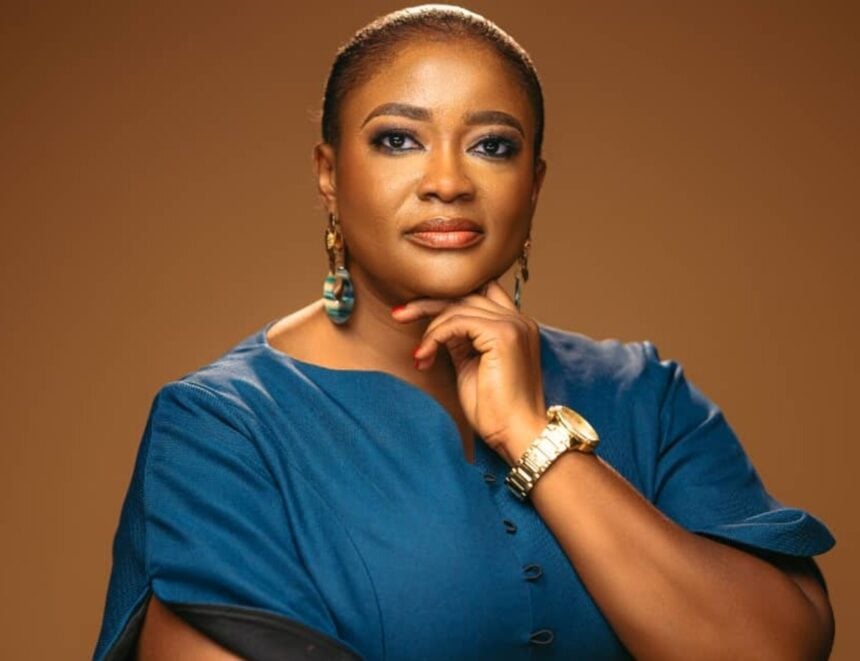In a compelling and timely webinar titled “Breaking the Glass Ceiling,” top professionals from various industries came together to confront the persistent challenges of workplace discrimination, harassment, and gender bias that continue to stall women’s career advancement.
Moderated by Funsho Anthony, the virtual panel featured voices such as Linda Ochugbua, Esohe Igbinoba, Amirah Oyegoke, Abigail Semono, and Ayodeji Osatuyi, all of whom shared personal insights and professional experiences highlighting the urgent need for systemic change.
Linda Ochugbua, a veteran in sales and marketing, delivered a powerful keynote stressing how outdated gender stereotypes continue to limit women’s rise in corporate spaces.
“We’re up against ingrained beliefs that tie leadership to masculinity,” she noted. She highlighted issues like tone policing, unequal pay, and biased performance evaluations, underscoring that policy alone is not enough.
“Harassment and discrimination must be called out, and policies must be enforced with intention,” she added.
Agile and life coach Abigail Semono emphasized the power of individual advocacy. Recounting her push for a lactation room in a previous workplace, she explained how one voice can spark significant institutional change.
“What seemed like a small request became a catalyst for broader support for working mothers,” she said.
Amirah Oyegoke, a product designer, tackled the often overlooked issue of subtle exclusion, explaining that discrimination often manifests not through overt acts but in being left out of critical meetings or projects.
“We have to stay aware and speak up when this happens,” she urged.
For Esohe Igbinoba, a venture builder, the struggle also includes navigating inappropriate behavior in business contexts.
Sharing her own experiences of being propositioned under the guise of professional meetings, she emphasized the importance of setting boundaries and rejecting harmful norms. “Protecting your dignity is non-negotiable,” she said.
The session also addressed intersectional bias. From the audience, Ayodeji Osatuyi shared his experience as a Nigerian man facing racial and accent-based discrimination in Canada. “You deal with prejudice on multiple fronts,” he explained. “My strategy has been to remain strategic—under-promise, over-deliver, and keep pushing forward.”
Discussions also delved into how cultural upbringing influences confidence and workplace behavior. Eniola Anthony spoke about being raised to be self-reliant and how that empowered her, but also drew criticism when she asserted herself. “Assertive women are often labeled ‘difficult,’” Linda added. “But silence won’t shield us either.”
One of the most damaging stereotypes addressed during the webinar was the notion that women who succeed have done so through unethical means. “That’s a lazy and harmful narrative,” said Obed Semono. Abigail echoed the sentiment, urging women to remain professional and to support one another.
Throughout the event, panelists agreed that real progress requires more than policies—it calls for a cultural shift. This includes regular workplace training on inclusive behavior, clear accountability mechanisms, active mentorship, and equal access to leadership opportunities.
In his closing remarks, Funsho Anthony emphasized that addressing gender bias is a collective responsibility. “Men need to be part of this dialogue. Real change happens faster when everyone is involved,” he said.
READ MORE FROM: NIGERIAN TRIBUNE
WATCH TOP VIDEOS FROM NIGERIAN TRIBUNE TV
- Let’s Talk About SELF-AWARENESS
- Is Your Confidence Mistaken for Pride? Let’s talk about it
- Is Etiquette About Perfection…Or Just Not Being Rude?
- Top Psychologist Reveal 3 Signs You’re Struggling With Imposter Syndrome
- Do You Pick Up Work-Related Calls at Midnight or Never? Let’s Talk About Boundaries







